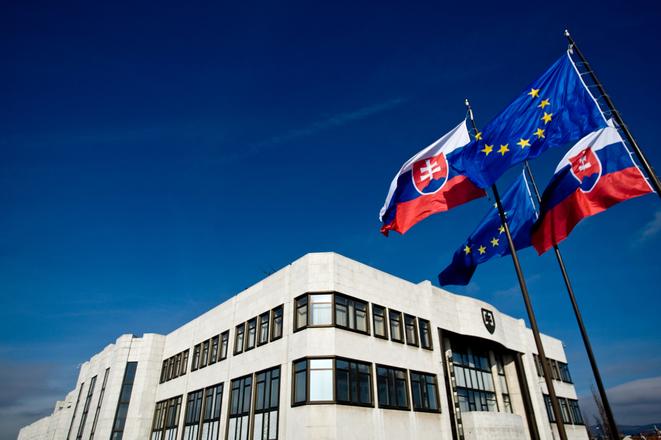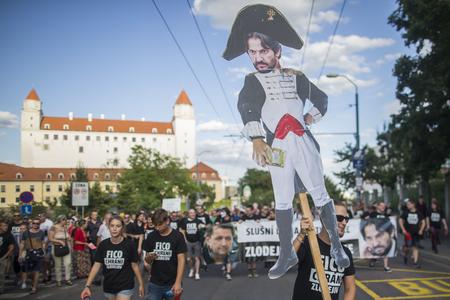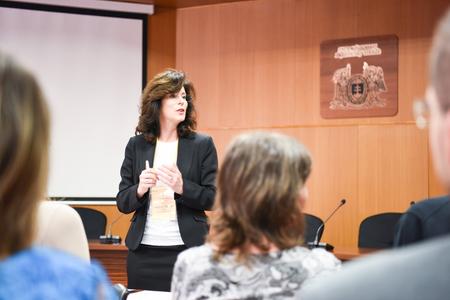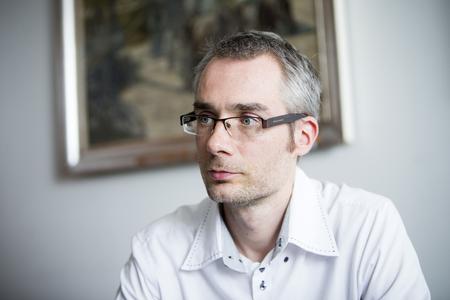The belief that the quality of democracy has a positive impact on people’s living standards is more widespread among Slovakia’s inhabitants now than it was five years ago. The number of those who desire Slovakia's exit from the EU has decreased.
That is one of the key findings of a representative study conducted at the beginning of April 2021 on a sample of 1001 respondents by the INEKO (Institute for Economic and Social Reforms) non-governmental think tank in cooperation with the Focus polling agency.
A study using the same questions aimed at mapping the perception of the quality of Slovak democracy was conducted in 2016, allowing for the tracking of public opinion and its development over the past five years regarding perceptions of democracy in Slovakia, trends between the quality of democracy and quality of life, and problems facing democracy along with their possible solutions.
“One positive is that in the past five years, the portion of people who trust in democracy and prefer democratic changes has increased significantly,” the authors of the study wrote.
Democracy perceived as the best option
The INEKO study detected an uptick in support of strengthening and monitoring democracy, which despite being imperfect continues to be seen as the best option available. The people of Slovakia support greater decentralisation and shifting of powers to municipalities and cities.
The most frequently agreed upon change for democracy in Slovakia is “greater involvement of decent people in the administration of public affairs (76.6 percent of respondents agreed in 2021, compared to 66.2 percent in 2016). There is also support for the strengthening of police investigators, persecutors, the judiciary, controlling and regulatory bodies, all to reduce the risk of power being abused (75.3 percent in 2021 compared to 65.2 percent in 2016).
While in 2016, just over half of the respondents indicated they believe in the need to foster and improve democracy, which is “not perfect, but there is no better option for us," in the recent poll the share increased to 64.9 percent.
Worse news coming from the survey was that a greater number of people reported dissatisfaction with democracy in 2021 (45.6 percent this year versus 39.8 percent in 2016). Satisfaction with democracy was reported in 29.3 percent in 2021 compared to 25.9 percent in 2016. The remaining respondents consider Slovak democracy as neither good nor bad (24.4 percent in 2021 and 33.3 percent in 2016).
Dissatisfaction with democracy was mainly reported from voters of opposition parties, namely Hlas, Smer, the far-right ĽSNS, Aliancia and Republika.
The highest satisfaction with democracy was reported by voters of parties like Za ľudí, OLaNO, SaS, and in some instances even Sme Rodina and Progressive Slovakia.
Less support for undemocratic solutions
Over the past five years the quality of democracy has decreased, according to 49.9 percent of respondents (compared to 43.1 percent in 2016). Only 20.8 percent of respondents reported that democracy has increased (as opposed to 17.8 percent in 2016). According to the remaining respondents (27.6 percent in 2021 and 36.4 in 2016) democracy hadn’t changed for better or worse.
Among the biggest complaints about democracy were those that politicians don’t have public interest and seem to want to line their own pockets or those of their befriended businesspeople, the uneconomic use of state resources, inequality before the law and unjust wealth divides between people.
Respondents also indicated a decrease in undemocratic tendencies among the public. Opinions about dissolving the parliament, a return to the socialist system from before 1989, exit from the EU (supported by 28.9 percent now compared to 34.8 in 2016), or the popularity of a "strong leader" with less checks and balances all lost popularity. People who exhibited more antidemocratic tendencies also reported being voters of parties like Smer, ĽSNS, and Hlas or abstaining from elections.





